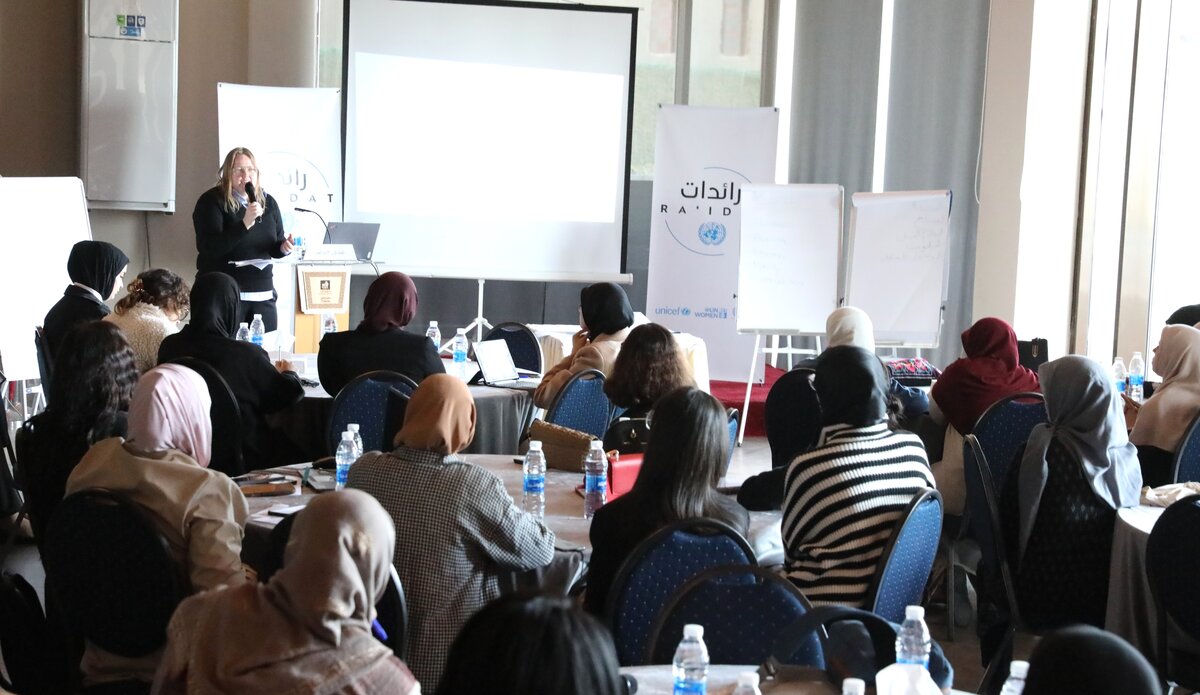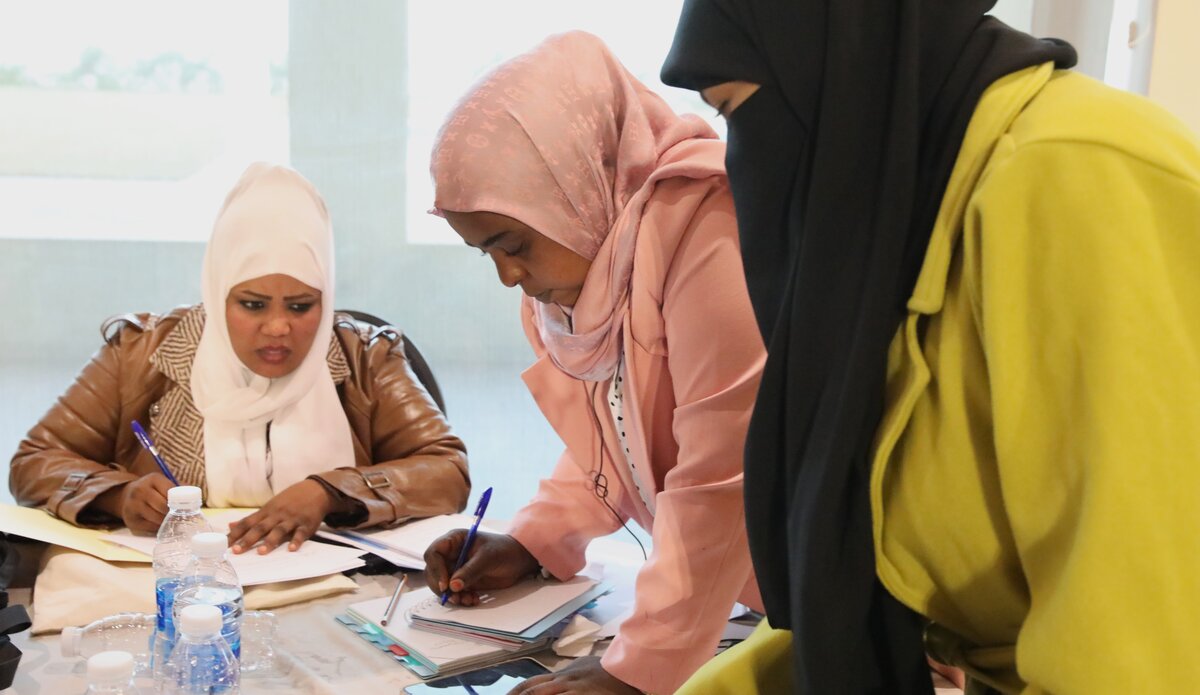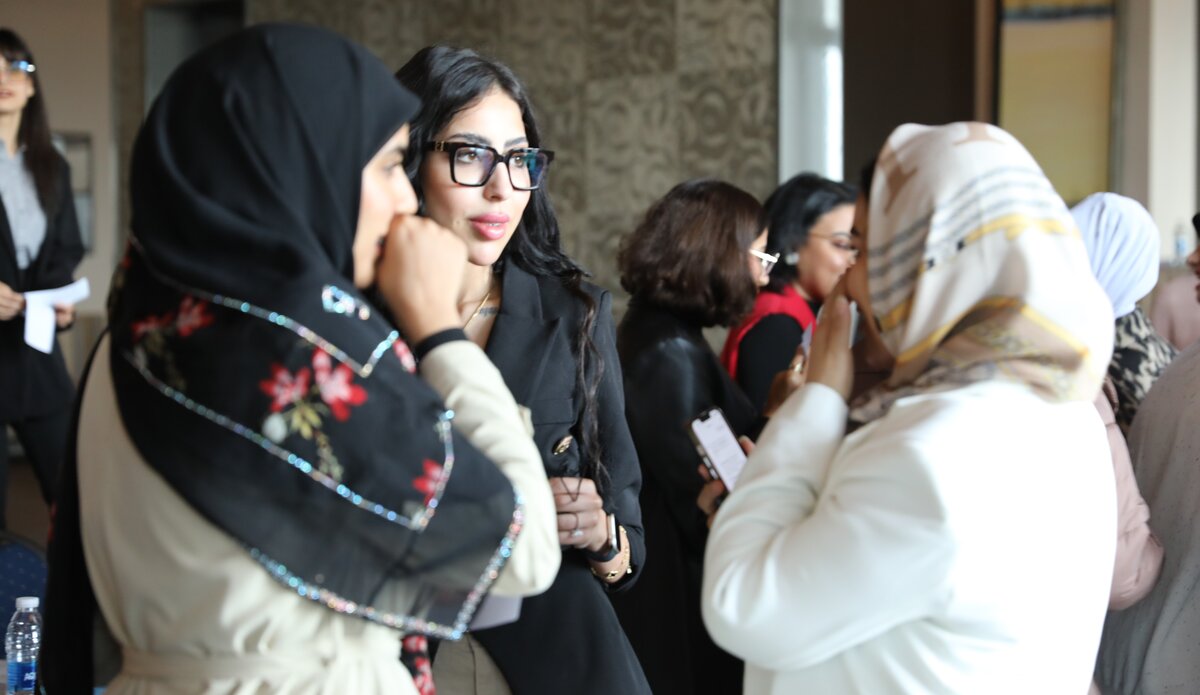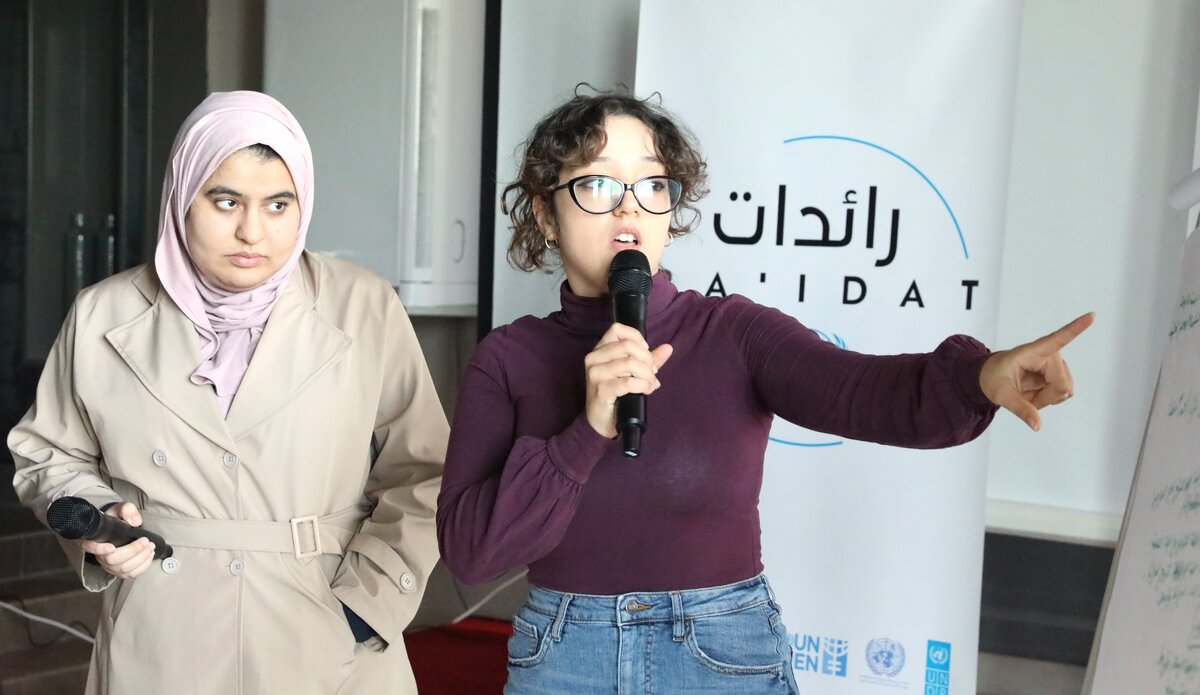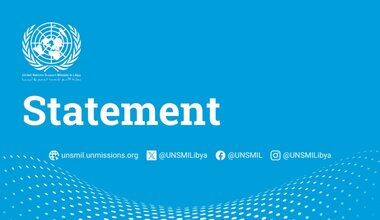Young women lead community advocacy for human rights
TRIPOLI – 10 December – As part of the UN in Libya Ra’idat programme, thirty-five young women from the south, east and west of Libya, including persons with disabilities, discussed how human rights can be leveraged to develop community-focused advocacy campaigns to drive change.
Working in groups to design their own campaigns, the young women focused on six key human rights issues related to decent work, education, housing, health, disabilities and the environment. They learnt how to focus their messaging and objectives to be able to advocate for change among their target audience.
“Rights are only real when they are available to everyone equally and meet clear standards like equity,” said one participant from Tripoli, who added that “to protect these rights, there must be the right laws, and proper enforcement.”
The group also examined the history of women’s roles in Libya and heard from a panel of female leaders from the UN, including the UNDP Resident Representative, Sophie Kemkhadze, UNICEF Acting Head of Education, Elizabeth Creek and UN Women Officer, Maram Akrout. The UN officials discussed different types of leadership, way to overcome fear, and the guiding values of their work. They further shared their personal experiences, and how they have learned to advocate for causes and navigate challenges.
Ra’idat is an annual UN in Libya programme aimed at developing the communication, leadership, teamwork and advocacy skills of young Libya women. This year 747 young women from across the country applied to the programme, with 35 being chosen following a competitive interview process.
ٍReflecting on what the training had taught them so far, one participant said: “I have learnt that we cannot achieve change without networking with people, gaining more knowledge and challenging ourselves. I can’t do anything alone.”
 United Nations Peacekeeping
United Nations Peacekeeping UN
UN
